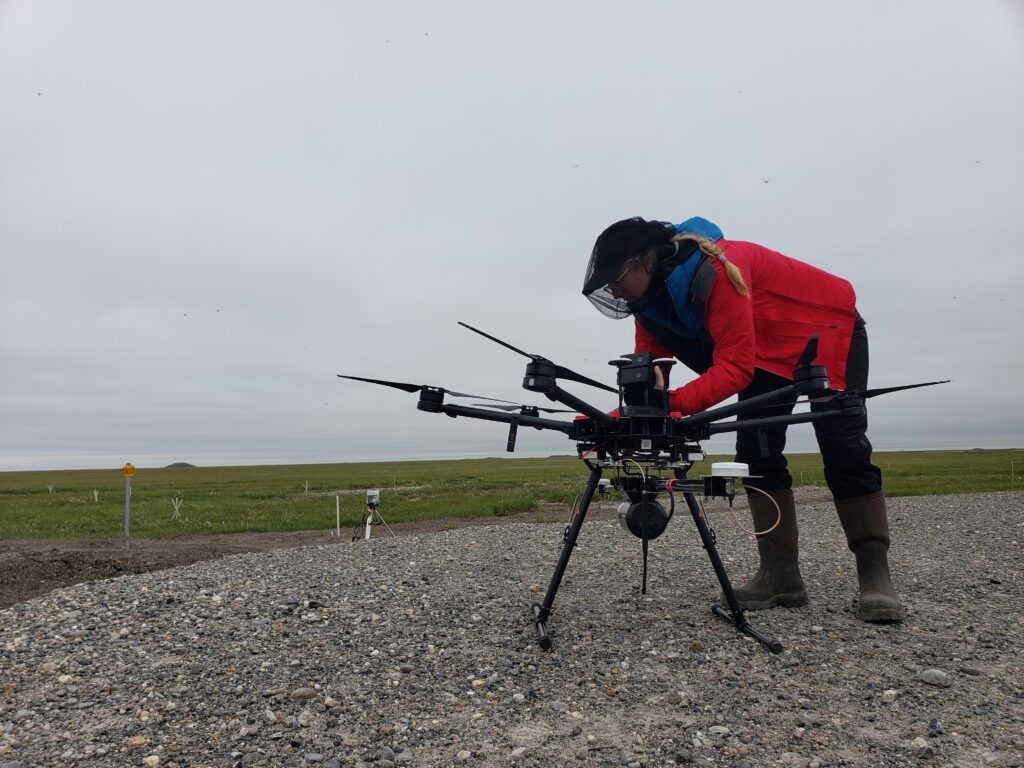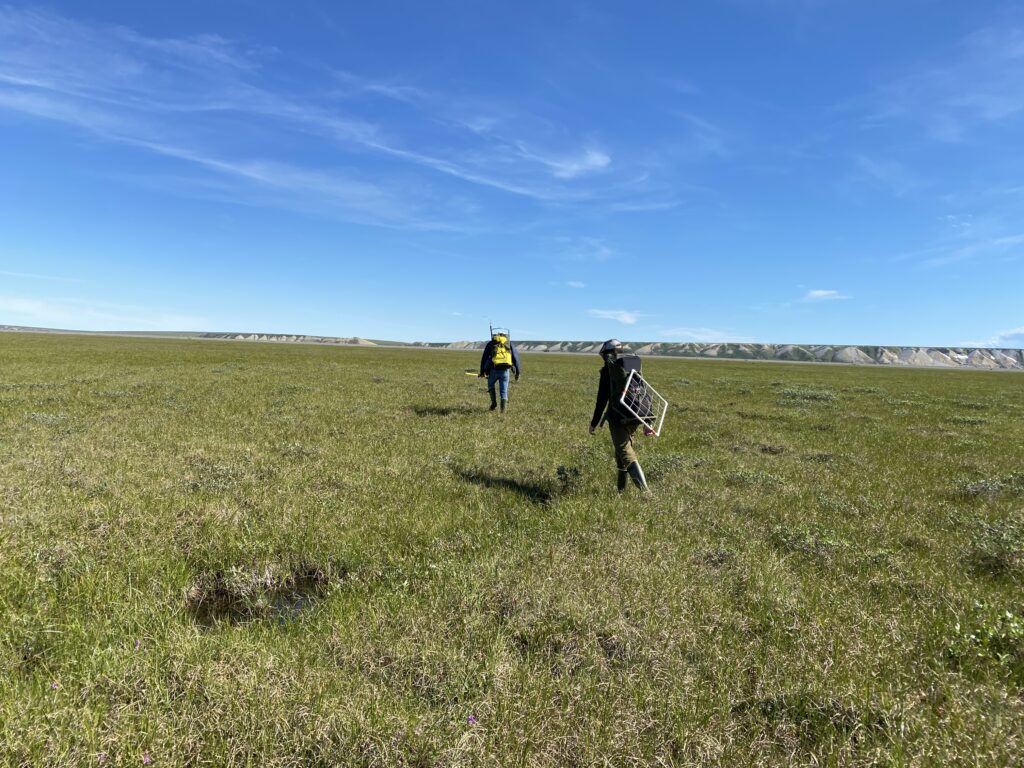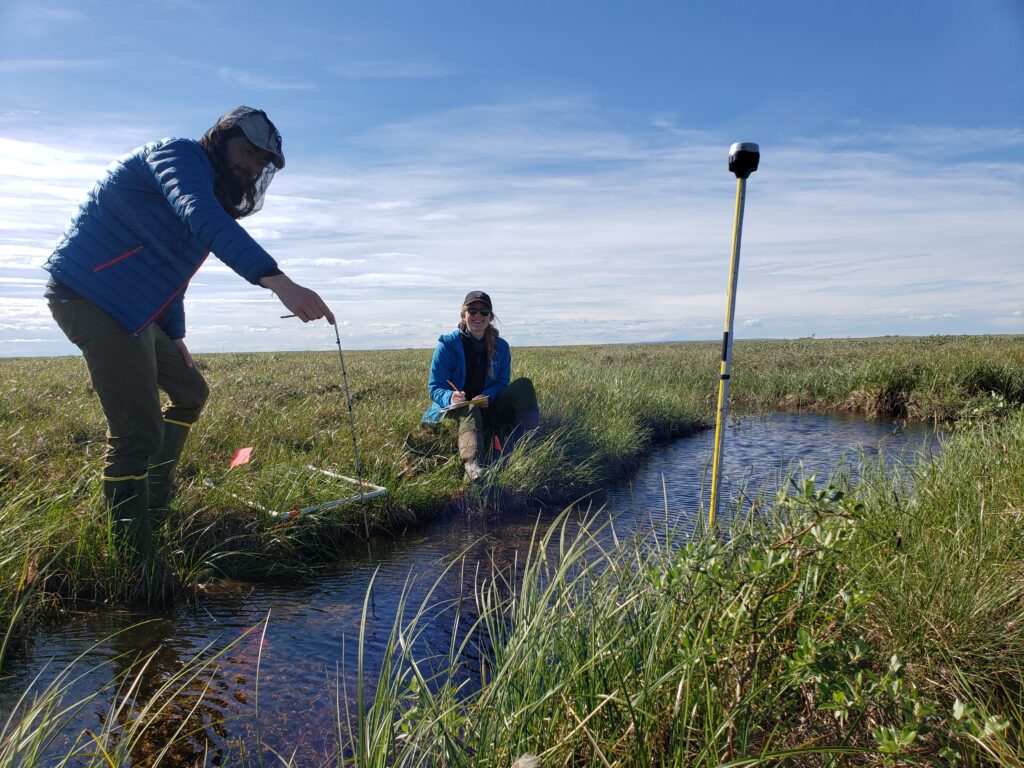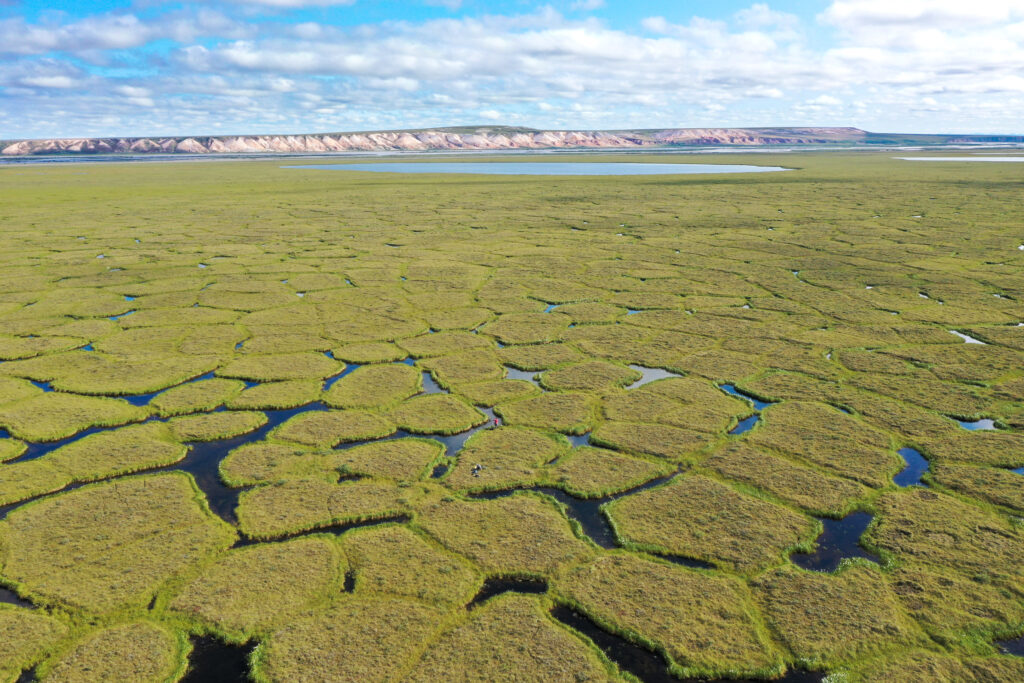Congratulations to UW-Madison Geography graduate student Katie Braun on being awarded the National Science Foundation – Graduate Research Fellowship Program. Her project examines permafrost degradation in the Arctic and its impact on carbon feedbacks to climate. Katie will be defending her MS this summer and then continuing to the Ph.D.
Hear more about the project from Katie herself:
“The project I proposed is focused on improving methods for detecting thawing permafrost using remote sensing (with satellite and drone imagery and LIDAR elevation data), and then using those maps of thawing permafrost combined with field work (validating the remote sensing maps + measuring soils, vegetation, topography, and carbon gases) to assess how much carbon is being released from that thawing permafrost. Basically, permafrost is frozen soils that have accumulated enormous quantities of carbon and now that permafrost is thawing, that carbon is being converted into carbon dioxide and methane.
So scientists know that permafrost thaw is definitely going to amplify climate change because of this permafrost-carbon feedback mechanism, but the exact amount of carbon that will be released and the timing of that release is uncertain. My project is intended to provide more constraints on the amount and rate at which carbon will be released from a particular type of permafrost called polygonal tundra.”







